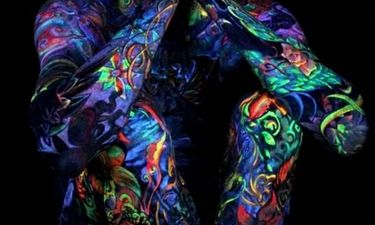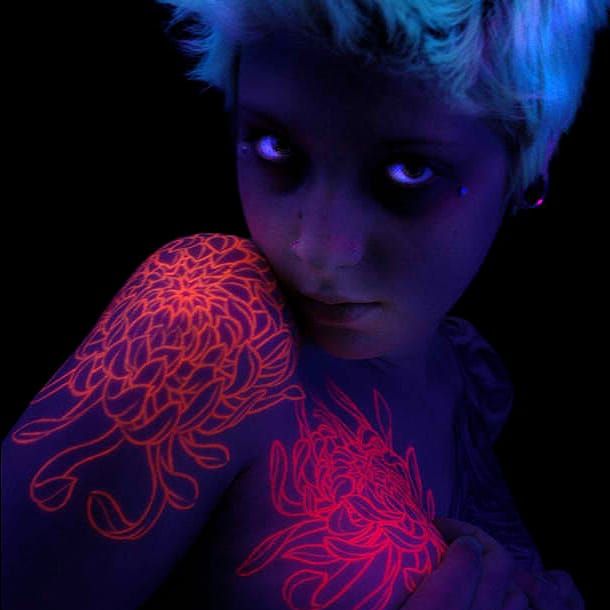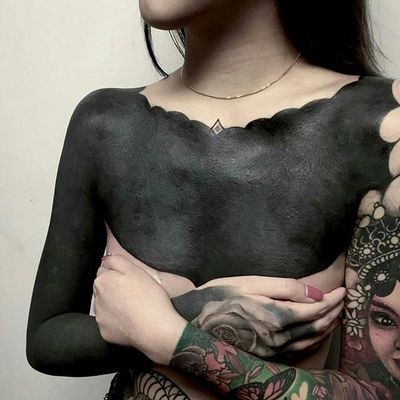Here are some stuff you need to know and points you might want to consider when getting UV ink tattoos.
It's amazing how tattooing has technically evolved from ancient tribal patterns (usually made out of natural pigments such as ash or dye) to new styles emerging such as white inks & UV ink tattoos. We've discussed white ink tattoos in the previous article (if you haven't seen it yet, click here) so now let's focus the spotlight (or black light, rather) on Ultraviolet ink tattoos. If you're planning on getting one, you're on the right page.
First of all, what is a UV ink tattoo? A UV ink tattoo is generally invisible (or nearly invisible) under broad daylight. The ingredients of UV tattoo inks are slightly different from normal tattoo inks, because it has chemicals that react to Ultraviolet light (also known as "black light"). Hence, it is only visible under this special light condition. It may or may not cause allergic reactions, and may appear invisible or visible after it's healed, depending on the type of UV ink used and how the skin reacts once it's been laid down.

Here's an example of a Black light fluorescent bulb. Make sure your tattoo artist is using one while doing your tattoo. UV ink tattoos take more time to apply compared to normal black tattoos due to its special components.

And here's a sample of a set of UV tattoo inks. Some are visible under daylight (the colored ones) as a normal colored tattoo ink would, (still glows under black light) and there are some that are completely invisible to the eyes. What you have to know too is that UV inks take longer to apply than normal tattoo inks as it requires black light and several passes to make sure that it really holds and shows up under black light. Scarring from the tattoo machine may also occur, causing the traces of the tattoo to look a bit visible under normal light after it's healed.



There are UV tattoo inks that are visible under normal light but glow under black light as well. It doesn't hold up as solid as a normal colored tattoo ink would though. And like we have discussed in our Tattoos & Aging article, tattoos fade overtime due to aging. So you have to consider that if you plan on getting a UV ink tattoo.

The reactivity of the black-light sensitive chemicals can possibly cease overtime as well. There are a lot of factors, such as how your skin holds it up as it ages, the way the artist applied it, or too much exposure to UV light and sunlight.

UV ink tattoos appeal to the rave subculture and to those who prefer their subtle tattoos to not get in the way with work. Some people want it cause they think its cool and some tattooed ones would like to add this to their collection. There are really lots of varying preferences among people that popularized this new tattooing style. But health-consciouswise, Scientists have just began studying its long term effects on the skin, because UV tattoos haven't been around for too long, so we're not really 100% sure how safe or worthwhile these inks are for a lifetime. So while we wait for factual results, we suggest you wait til you get a UV ink tattoo for yourself, too. Research and read more articles about the subject, and we leave the decision up to you. Best of luck! :)




